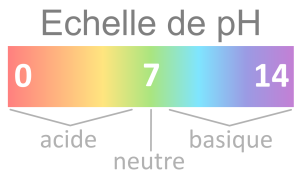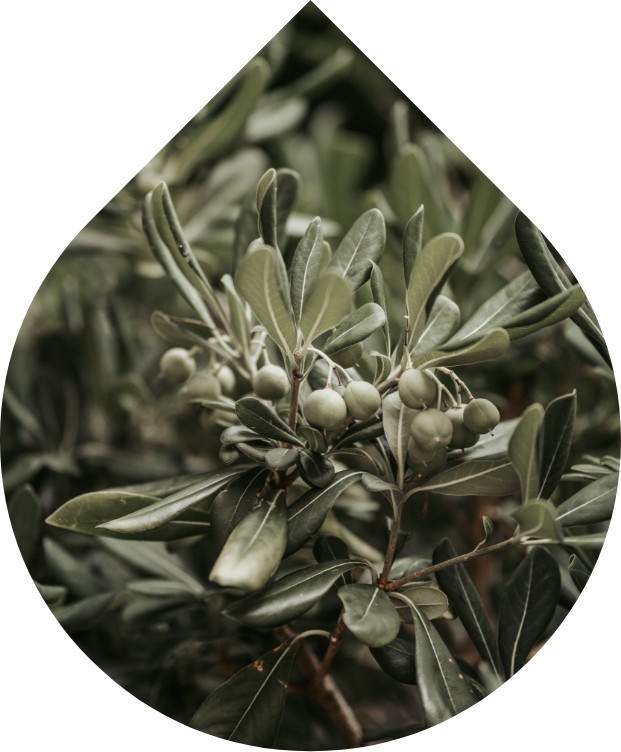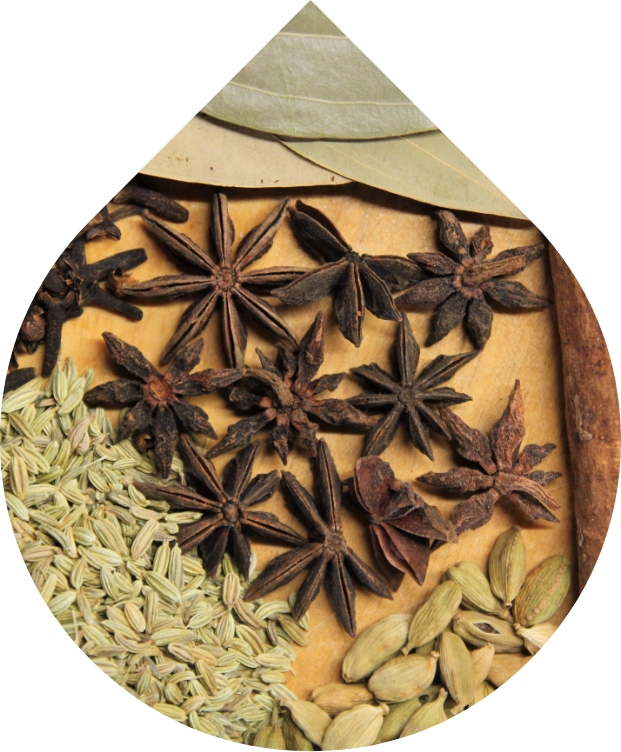Floral waters
A floral water, also called hydrolate, is the aqueous distillate that remains after steam distillation of a raw material of plant origin and the separation of the essential oil. It is mostly water in which a small part of the essential oil remains trapped.
The analytical services offered by the laboratory Pyrenessences Analyses on herbal distillates:
Essential oil content
The essential oil contained in the hydrolate can be extracted to estimate its content (in mg/L).
Chromatographic profile of the essential oil contained
The composition of the extracted essential oil can be determined by gas chromatography according to ISO 11024. Two types of analysis are offered:
Classic analysis
Table with up to 80 identified compounds
Simple analysis
Table showing the major molecules (> 1%) up to 20 compounds.
Specific gravity
Ratio between the density of the sample and that of pure water at a given temperature.
pH
For “potential of hydrogen” – a number that quantifies the acidic or basic character of a solution; it varies from 0 to 14.

Multi-residue analysis of pesticides
The laboratory proposes a multi-residue research of pesticides in hydrolates.
List of target molecules:
Alachlor
Aldrine
Atrazine
Azinphos Ethyl-
Azinphos Methyl-
Benalaxyl
Bifenthrine
Bitertanols
Bromophos Ethyl-
Bromophos Methyl-
Bromopropylate
Carbofuran
Chlordane cis-
Chlordane trans-
Chlorfenvinphos
Chlorobenzilate
Chlorothalonil
Chlorpropham
Chlorpyriphos Ethyl-
Chlorpyriphos Methyl-
Chlorthal Dimethyl-
Clomazone
Coumaphos
Cyfluthrines
Cyhalothrineλ-
Cypermethrines
DDD o,p’-
DDD p,p’- + DDT o,p’-
DDE o,p’-
DDE p,p’-
DDT p,p’-
Deltamethrines
Diazinon
Dichlofenthion
Dichlofluanide
Diclofop Methyl-
Diethofencarb
Difenoconazols
Diflufenican
Dimethoate
Diphenylamine
Endosulfanα-
Endosulfanβ-
Endosulfan sulfate
Endrine
Ethion
Ethofumesate
Ethoprophos
Etridiazole
Etrimphos
Fenamiphos
Fenarimol
Fenchlorphos
Fenoxycarb
Fenpropathrine
Fenpropimorphe
Fensulfothion
Fenthion
Fenvalerates
Fluazifop p-Butyl-
Flucythrinates
Flusilazole
Flutolanil
Flutriafol
Fonofos
HCH α-
HCH β- + Lindane
HCH δ-
Heptachlore
Heptachlor epoxide
Hexachlorobenzene
Hexaconazole
Iprodione
Malaoxon
Malathion
Mecarbam
Metalaxyl
Metazachlor
Methacrifos
Methidathion
Methiocarb
Methoxychlore
Metolachlor
Mirex
Monalide
Monocrotophos
Myclobutanil
Napropamide
Omethoate
o-Phenylphenol
Oxadiazon
Oxadixyl
Penconazole
Pentachloroaniline
Pentachloroanisole
Permethrines
Phosalone
Phosmet
Piperonyl butoxide
Pirimicarb
Pirimiphos Ethyl-
Pirimiphos Methyl-
Prochloraz
Procymidone
Profenophos
Propiconazols
Propyzamide
Prothiofos
Pyridaben
Pyridaphenthion
Pyrimethanil
Quinalphos
Quizalofop Ethyl-
S421
Sebuthylazine
Tebuconazole
Terbufos
Terbuthylazine
Tetradifon
Tetramethrines
Tolclofos Methyl-
Tolylfluanid
Triadimefon
Triadimenol
Triazophos
Vinclozoline
Microbiological analysis
The laboratory offers 2 types of microbiological analyses in hydrolates according to ISO 16212 and 21149 standards.
Total Flora:
Mesophilic bacteria growing aerobically at 32,5 °C (± 2,5 °C).
Yeasts and Moulds:
Able to grow aerobically at 25 °C (± 2,5 °C).

Essential oils
and aromatic synergies
Lorem ipsum dolor sit amet, consetetur sadipscing elitr, sed diam nonumy eirmod tempor invidunt ut labore.

Absolutes and concretes
Lorem ipsum dolor sit amet, consetetur sadipscing elitr, sed diam nonumy eirmod tempor invidunt ut labore.

Vegetable oils
Lorem ipsum dolor sit amet, consetetur sadipscing elitr, sed diam nonumy eirmod tempor invidunt ut labore.

Spices
& herbs
Lorem ipsum dolor sit amet, consetetur sadipscing elitr, sed diam nonumy eirmod tempor invidunt ut labore.

